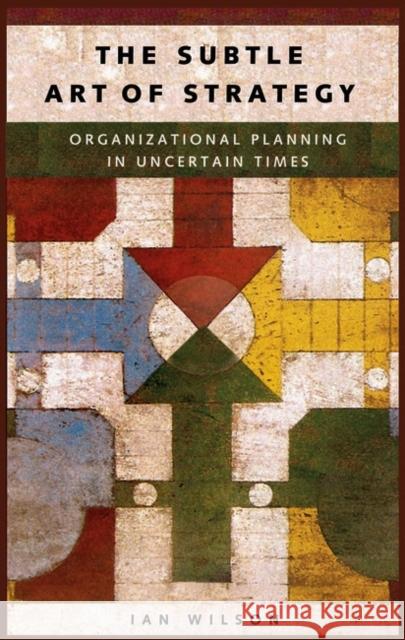The Subtle Art of Strategy: Organizational Planning in Uncertain Times » książka
The Subtle Art of Strategy: Organizational Planning in Uncertain Times
ISBN-13: 9781567204353 / Angielski / Twarda / 2003 / 192 str.
Strategy--and the planning that created it--has too often failed to deliver its promised results. The reasons for this failure are many and varied, but include an over-reliance on the next big thing in strategic methodology, a failure to recognize and deal with the total change that strategy requires in an organization, and an inability to deal with uncertainty. Wilson argues that strategy is a subtle and demanding art, far more than it is a science or a methodology.
To succeed in dealing with complex, interacting forces inside and outside the organization, strategy must:
Deal with the totality of the organization in the context of its total environment (not just one function or one facet of the organization)
Learn to harness the power of opposites (the sometimes conflicting objectives of the organization, e.g., the long term and short term; vision and execution; economic constraints and social responsibility)
Deal constructively with pervasive uncertainty in its future
Develop a strategic vision
Create a culture that fosters a strategic mindset throughout the organization.
Without constant change and adaptation, a strategy will fail. Continuing success depends, therefore, upon constant learning from customers, competitors, changes in our environment, and our own mistakes."











